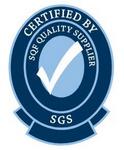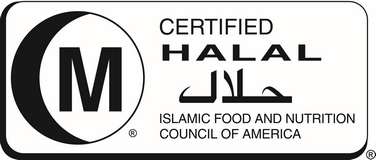Click HERE To Buy Antabuse Online ↓
 Antabuse Vs. Naltrexone: Comparing Alcoholism Medications
Antabuse Vs. Naltrexone: Comparing Alcoholism Medications
Understanding How Antabuse and Naltrexone Work
Antabuse creates a powerful physical reaction when alcohol is consumed, causing unpleasant symptoms like nausea and flushing. This deterrent effect is designed to discourage drinking by associating it with discomfort. In contrast, naltrexone works by blocking the pleasurable effects alcohol produces in the brain. As a result, cravings and the urge to drink are reduced.
| Antabuse | Naltrexone |
|---|---|
| Causes aversive reaction to alcohol | Blocks reward pathways |
| Discourages drinking through symptoms | Reduces cravings and pleasure |
Both medications address alcohol use disorder differently, impacting the body and brain in unique ways. This distinction helps guide the right choice for each individual’s recovery journey.
Key Differences in Treating Alcohol Use Disorder

When comparing alcoholism treatments, understanding the unique mechanisms of each medication is essential. Antabuse works by creating a strong sensitivity to alcohol. If someone drinks while taking Antabuse, they experience immediate unpleasant reactions—nausea, vomiting, and flushing—which acts as a powerful deterrent. In contrast, naltrexone works quietly in the brain, blocking the rewarding effects that make alcohol so difficult to resist.
The experience of using these medications differs, too. Antabuse relies on negative reinforcement, while naltrexone reduces cravings and allows for a more gradual behavioral shift. Ultimately, each medication offers a distinct approach, helping individuals tackle alcohol use disorder from different angles.
Side Effects: What Users Should Prepare for
When starting antabuse, many people are surprised by how strictly it works. Just a small amount of alcohol can cause nausea, flushing, and a pounding heartbeat—making it a strong deterrent for drinking. By comparison, naltrexone works differently and doesn’t provoke a reaction if you slip and have a drink. Instead, it blocks the pleasurable effects of alcohol, but may cause headaches, nausea, tiredness, or anxiety for some.
New users can feel nervous about side effects. Not everyone will experience them, but being prepared can help. Open, honest conversations with your healthcare provider are vital for managing symptoms and ensuring long-term success on your recovery journey.
Who Is Best Suited for Each Medication?

When considering which medication is most appropriate, personal motivation and drinking patterns play key roles. Antabuse is often recommended for individuals who have already achieved initial sobriety and are highly motivated to avoid alcohol entirely. This medication works best for those who have reliable social support and can commit to abstinence, as even small amounts of alcohol can cause intense, unpleasant reactions when taking Antabuse.
On the other hand, naltrexone may be better suited for people still struggling to control their cravings or who might not be ready to quit drinking altogether. Unlike Antabuse, naltrexone can help reduce the pleasure felt from alcohol, making it easier for some to cut back gradually. Individual preferences, health status, and treatment goals will significantly influence which medication offers the best pathway toward recovery.
Real-world Success Stories and Patient Experiences
Many individuals struggling with alcoholism find hope through medications like antabuse. For example, Linda shared that antabuse gave her the extra motivation to avoid drinking, while others appreciated the clear cause-and-effect relationship it provided. Meanwhile, patients using naltrexone often describe a gradual reduction in cravings that helps them regain control.
Below is a comparison of patient-reported outcomes:
| Medication | Reported Benefit | Challenge |
|---|---|---|
| Antabuse | Strong deterrent effect | Strict adherence required |
| Naltrexone | Reduced cravings | Varied response time |
Making an Informed Choice with Your Doctor
When considering treatment options for alcohol use disorder, open communication with your healthcare provider is essential. Your doctor will assess your medical history, any co-occurring conditions, and preferences to help you find the most suitable medication. Both Antabuse and Naltrexone have unique benefits and drawbacks, so discussing your lifestyle, goals, and concerns can lead to a tailored treatment plan.
Combining honest conversation with professional guidance ensures you can weigh the risks and advantages, prepare for possible challenges, and set realistic expectations on your recovery journey. Remember, choosing the right medication is a collaborative process designed to support your long-term sobriety. Antabuse: Clinical Review - NCBI U.S. FDA Antabuse Information





















